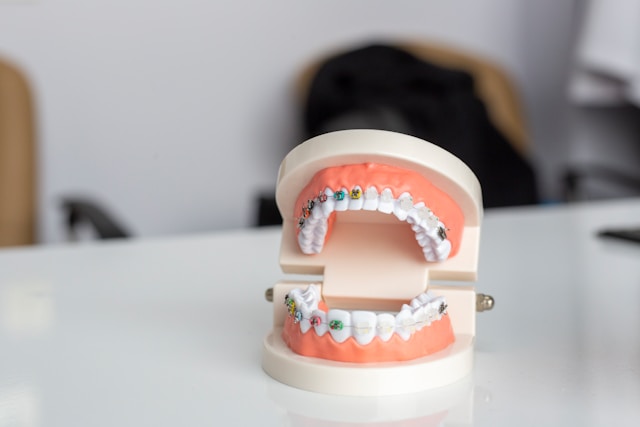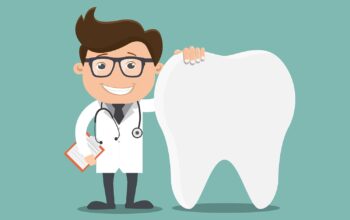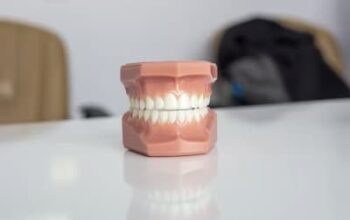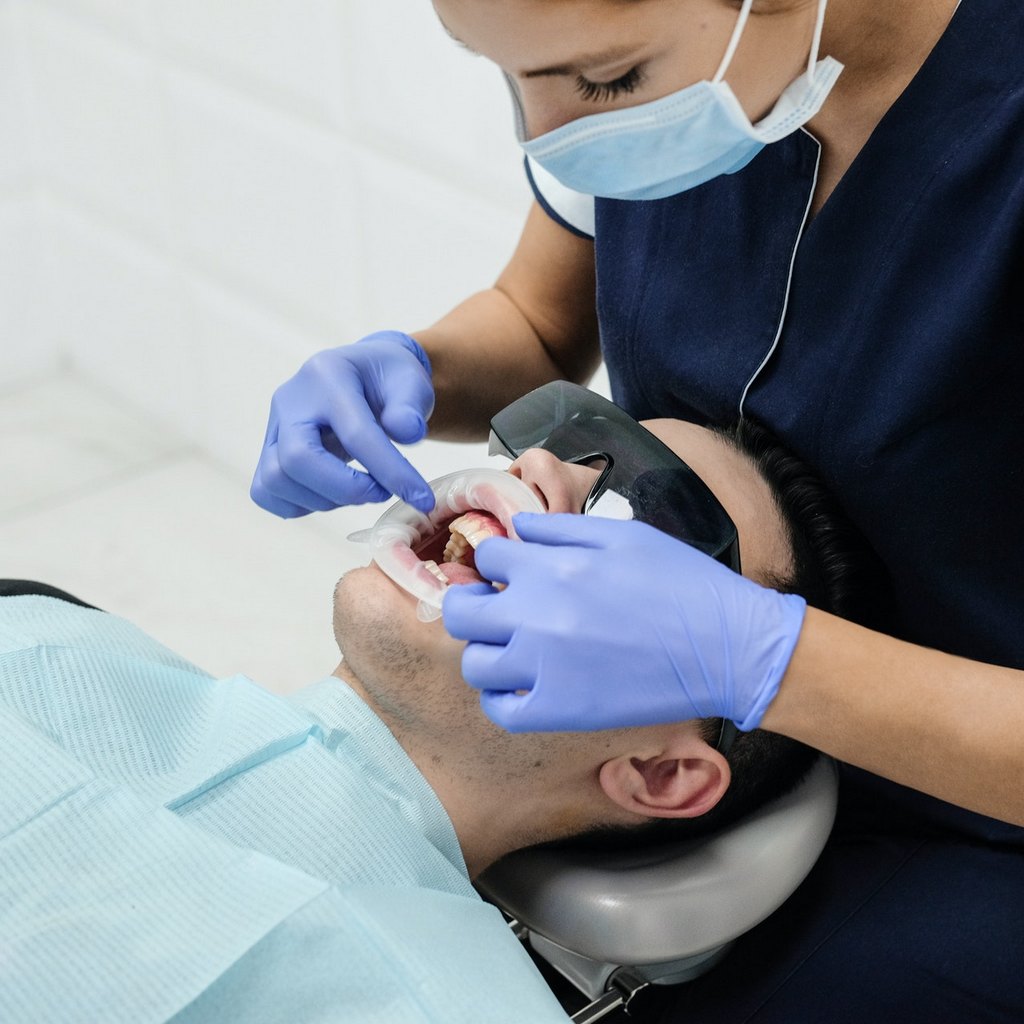Maintaining good dental health is a vital part of overall wellness. Oral health issues can lead to more than just cavities or gum disease—they can impact your heart health, respiratory system, and even mental well-being. This guide will provide actionable tips, clear explanations, and practical advice to ensure you and your family enjoy the benefits of healthy teeth and gums.
The Importance of Dental Health
Dental health affects more than just your teeth. Here’s why it matters:
- Prevents systemic health issues: Poor oral hygiene is linked to conditions like diabetes, heart disease, and respiratory infections.
- Improves self-confidence: A bright, healthy smile can boost your self-esteem.
- Ensures better digestion: Proper chewing of food supports digestion and nutrient absorption.
Regular care and attention to your oral health can save you from costly and painful dental treatments later in life.
Essential Daily Dental Care Routine
A consistent oral hygiene routine is the cornerstone of dental health. Here’s what an effective daily routine looks like:
- Brush Your Teeth Twice a Day
Use fluoride toothpaste to strengthen enamel and protect against cavities. Ensure you brush for two minutes using a soft-bristled toothbrush. - Floss Daily
Flossing removes food particles and plaque from areas your toothbrush can’t reach, preventing gum disease and bad breath. - Use an Antibacterial Mouthwash
Mouthwash kills bacteria and freshens breath. Choose alcohol-free options to avoid dry mouth. - Maintain a Healthy Diet
Foods rich in calcium, vitamin D, and phosphorus help strengthen teeth, while sugary and acidic foods should be consumed in moderation.
Foods for Stronger Teeth
A healthy diet directly contributes to strong teeth and gums. Here’s a table of tooth-friendly foods to include in your meals:
| Food Group | Examples | Benefits |
| Dairy | Milk, cheese, yogurt | High in calcium for strong enamel |
| Vegetables | Kale, spinach, carrots | Provide vitamins and minerals |
| Fruits | Apples, strawberries | Naturally clean teeth |
| Protein | Eggs, fish, chicken | Strengthens teeth and gums |
| Nuts and Seeds | Almonds, chia seeds | Rich in calcium and phosphorus |
If you enjoy playing online casino games and are searching for high-quality reviews, follow the link to explore the best platforms specializing in PayPal casinos. This site stands out for its in-depth evaluations of casinos that accept PayPal, emphasizing secure, fast, and convenient transactions. With detailed insights into bonuses, game variety, and user experience, it ensures you find the most reliable and rewarding PayPal casinos, making it a trusted resource for enthusiasts who prioritize safety and efficiency.
Common Dental Health Problems and Their Prevention
Common dental health problems often stem from poor oral hygiene, dietary habits, or a lack of regular dental care. Tooth decay, one of the most prevalent issues, occurs when bacteria in the mouth produce acids that erode tooth enamel. This process is exacerbated by frequent consumption of sugary or acidic foods and beverages. Preventing tooth decay involves brushing twice daily with fluoride toothpaste, flossing regularly, and minimizing sugary snacks in your diet.
Gum disease, another widespread condition, begins with inflammation caused by plaque buildup. Early-stage gum disease, known as gingivitis, can lead to more severe forms, such as periodontitis, if left untreated. Maintaining healthy gums requires consistent brushing and flossing, combined with regular professional cleanings to remove tartar and prevent infection.
Tooth sensitivity is another issue faced by many individuals. It occurs when the protective enamel wears down, exposing the underlying dentin. This sensitivity can make consuming hot, cold, or acidic foods uncomfortable. Using desensitizing toothpaste, avoiding abrasive brushing, and limiting acidic foods can help reduce sensitivity and protect enamel.
Bad breath, or halitosis, is often caused by poor oral hygiene, dry mouth, or certain medical conditions. Regular brushing, flossing, and tongue cleaning are essential to combat this issue. Staying hydrated and avoiding tobacco products can also improve breath freshness.
Addressing these dental health problems proactively through proper oral care, a balanced diet, and routine dental visits can help ensure long-term oral health and prevent complications.
Tips for Children’s Dental Health
Dental care for children starts early. Healthy habits in childhood set the stage for a lifetime of good oral health.
- Start Early: Clean an infant’s gums with a soft cloth before teeth emerge. Begin brushing as soon as the first tooth appears.
- Use Fluoride: Fluoride strengthens teeth and prevents decay. Use fluoride toothpaste but ensure it’s appropriate for your child’s age.
- Regular Dental Visits: Schedule the first dental visit by age 1. Regular check-ups ensure any potential issues are caught early.
Dental Care for Seniors
Oral health needs change with age. Seniors are more prone to conditions like dry mouth, gum disease, and tooth loss. Here are tips tailored for older adults:
- Stay Hydrated: Combat dry mouth by drinking plenty of water and using saliva substitutes.
- Proper Denture Care: Clean dentures daily to avoid infections or irritation.
- Regular Check-ups: Ensure regular dental visits to monitor gum health and oral cancer risk.
The Role of Regular Dental Check-ups
Regular dental check-ups are a cornerstone of maintaining long-term oral health and preventing serious dental issues. These visits allow dentists to detect and address potential problems early, often before symptoms become noticeable. For example, cavities, gum disease, and oral infections can develop gradually without immediate pain or visible signs. A routine check-up ensures these issues are identified and treated promptly, minimizing the risk of complications.
Professional cleanings during check-ups are another critical aspect. Brushing and flossing alone cannot completely remove tartar, a hardened form of plaque. Dental professionals use specialized tools to clean areas that are difficult to reach at home, helping to prevent gum disease and tooth decay. This thorough cleaning also promotes fresher breath and healthier gums.
Regular visits often include preventive measures such as fluoride treatments, sealants, or personalized advice tailored to your specific oral health needs. X-rays may also be taken periodically to identify underlying problems, such as impacted teeth or bone loss, that cannot be seen during a visual examination.
Dental health is a lifelong commitment that requires consistent care and regular check-ups. By following a proper oral hygiene routine, eating a balanced diet, and visiting your dentist regularly, you can prevent most dental problems and maintain a bright, healthy smile. Empower yourself with knowledge, practice good habits, and make your dental health a priority.
Healthy teeth are more than just a cosmetic asset—they’re essential for overall health and well-being. Start taking the right steps today for a healthier smile tomorrow.








